Get Your Copilot

Create Chatbot For Attendance
Revolutionize your attendance management with Copilot.Live AI-powered system. Enjoy seamless tracking, facial recognition, and geo-tagging for accurate workforce management. Enhance efficiency and accuracy with our cutting-edge AI technology.
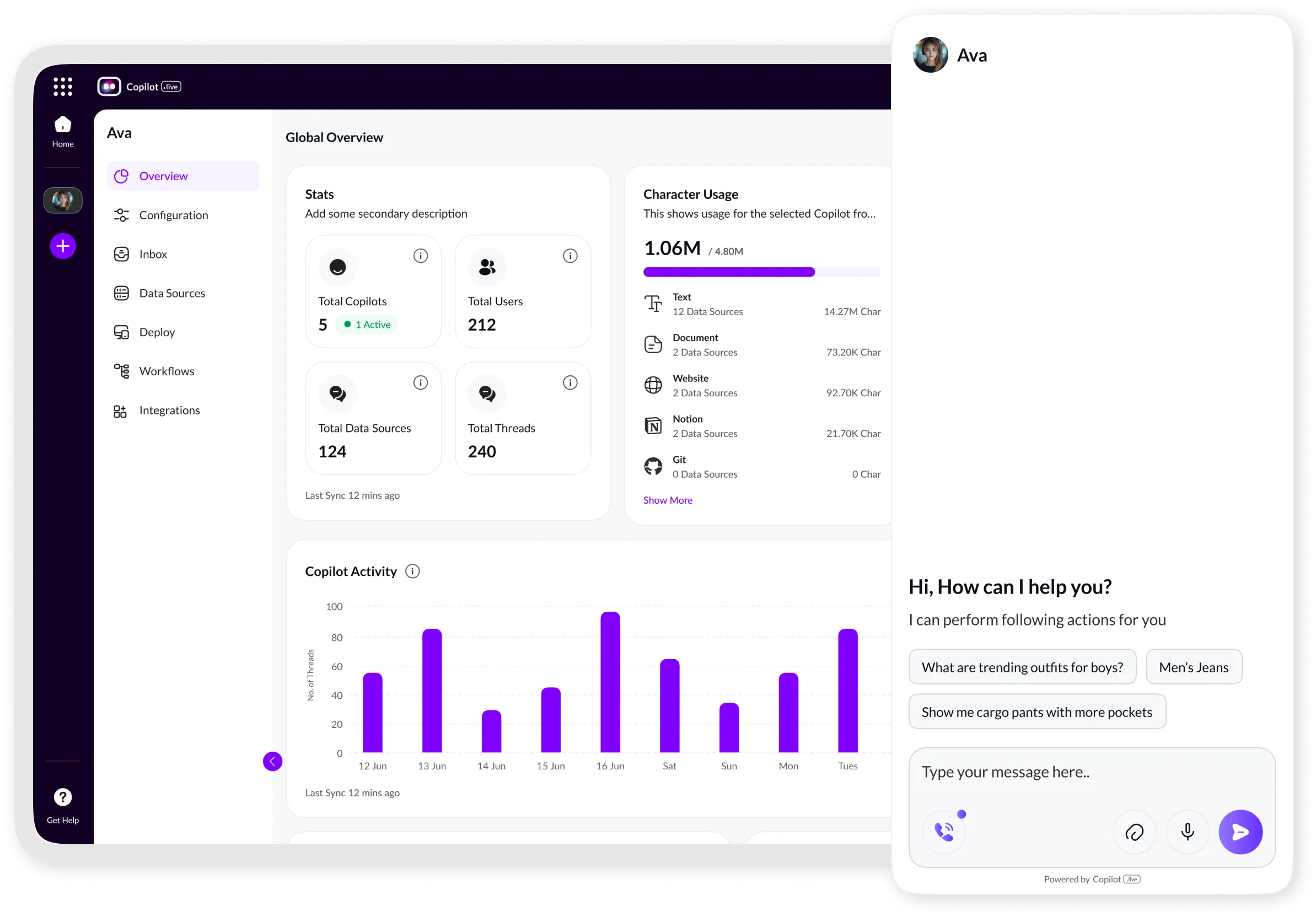
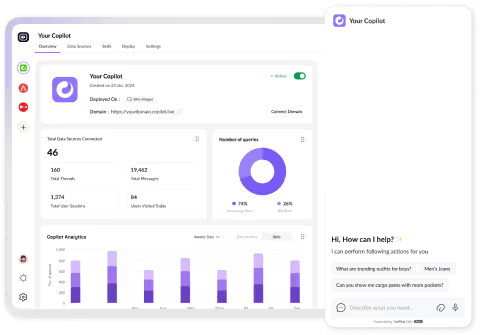
Create Chatbot For Attendance
Revolutionize your attendance management with Copilot.Live AI-powered system. Enjoy seamless tracking, facial recognition, and geo-tagging for accurate workforce management. Enhance efficiency and accuracy with our cutting-edge AI technology.


Build an AI assistant in 3 minutes
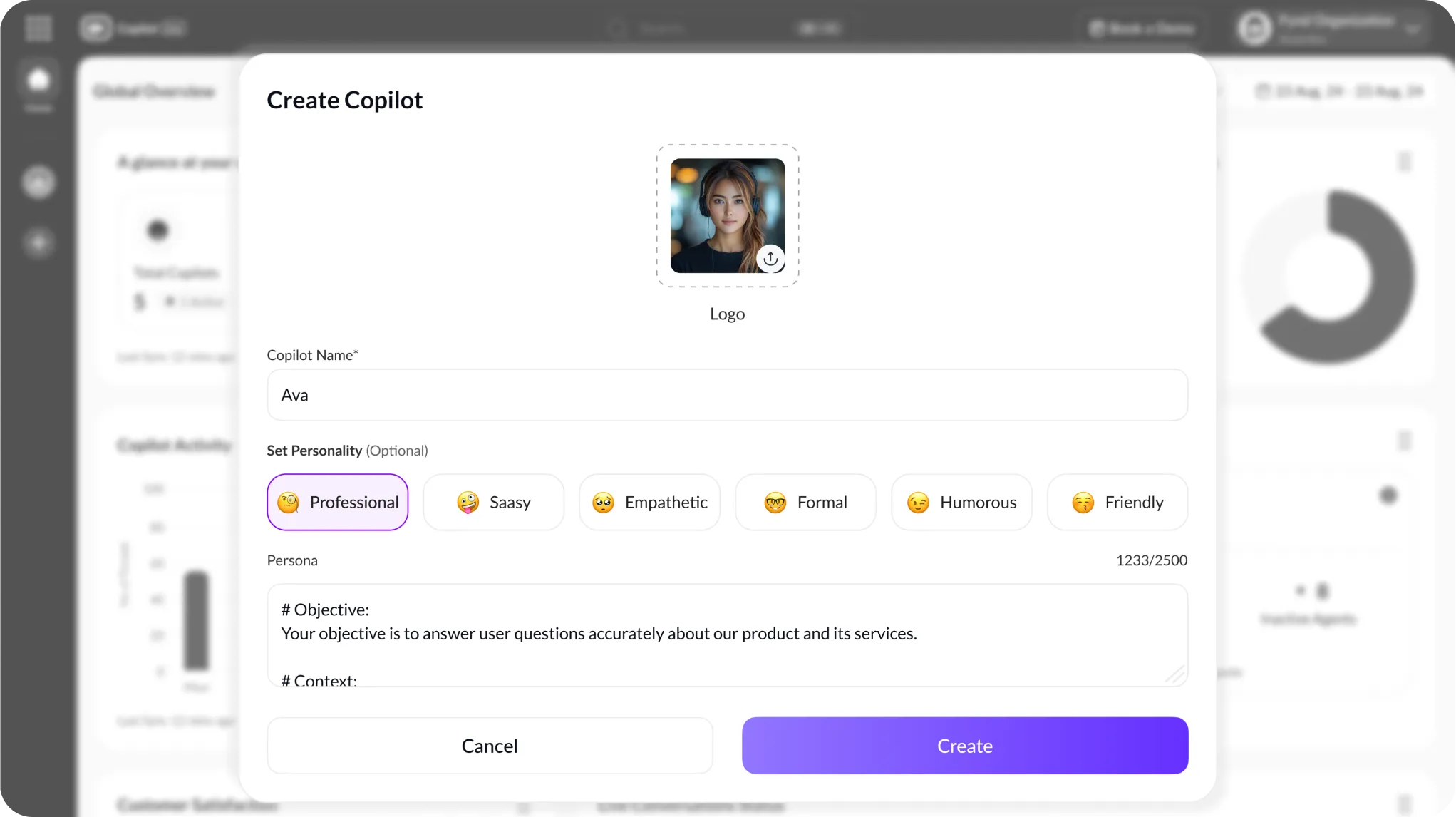
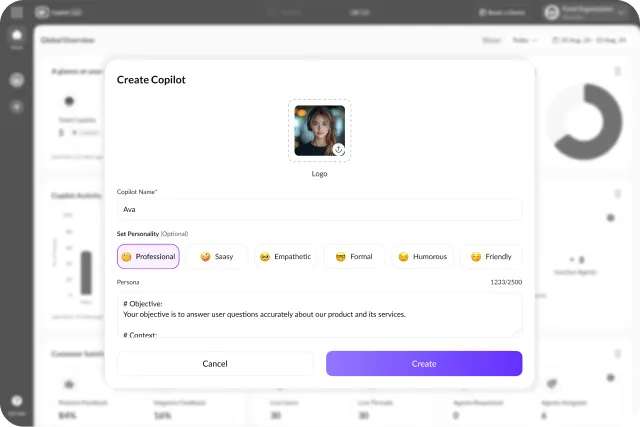
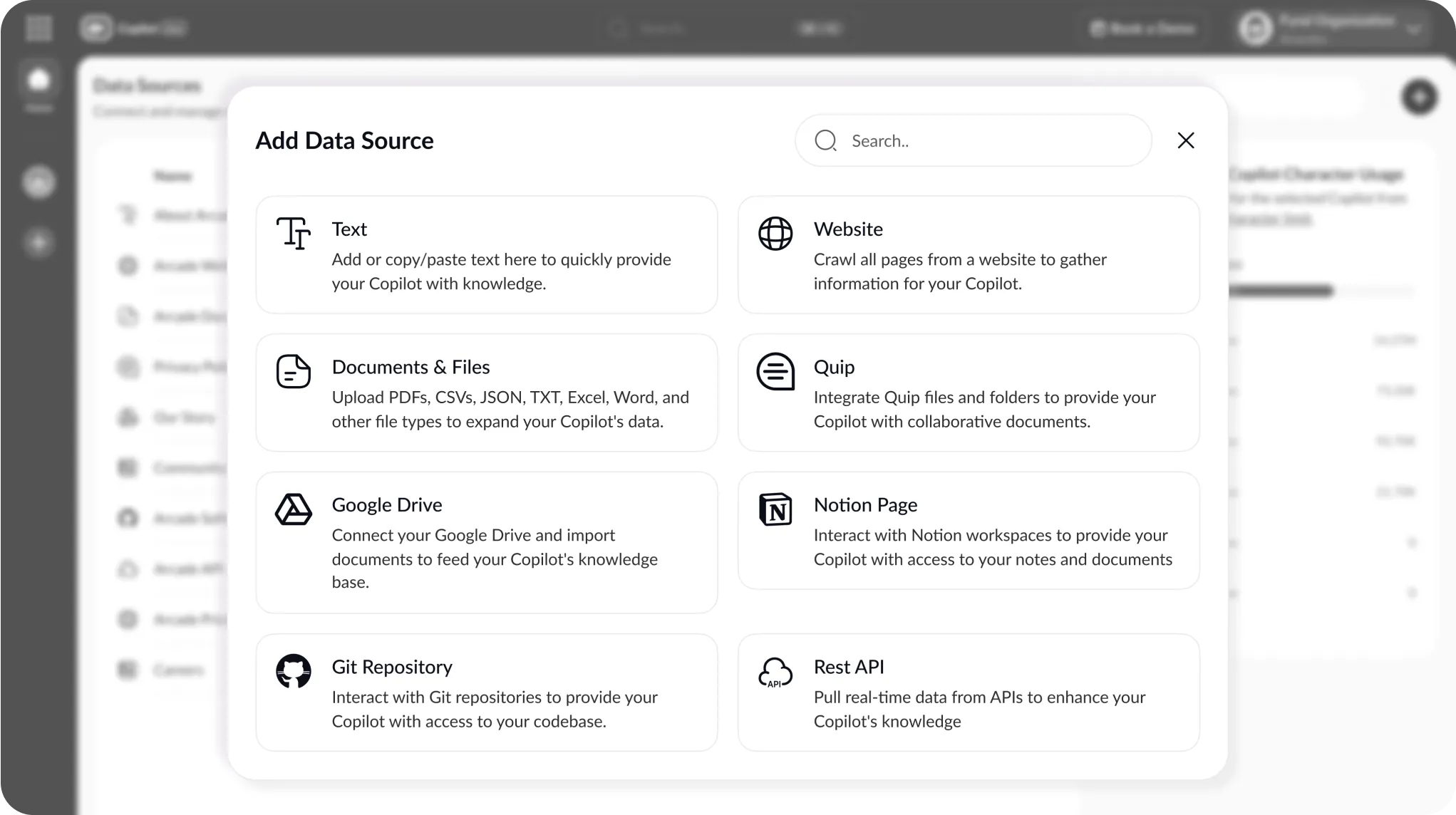
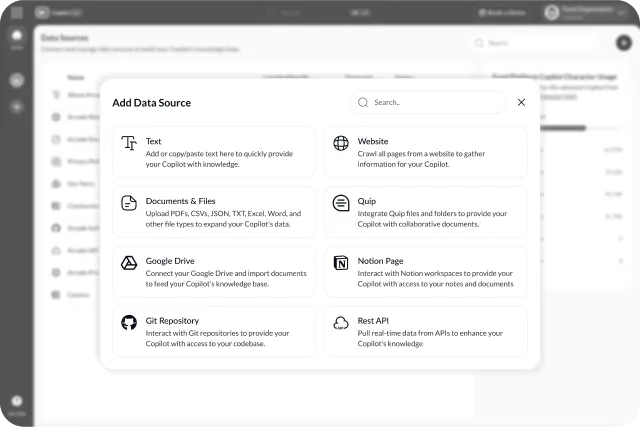
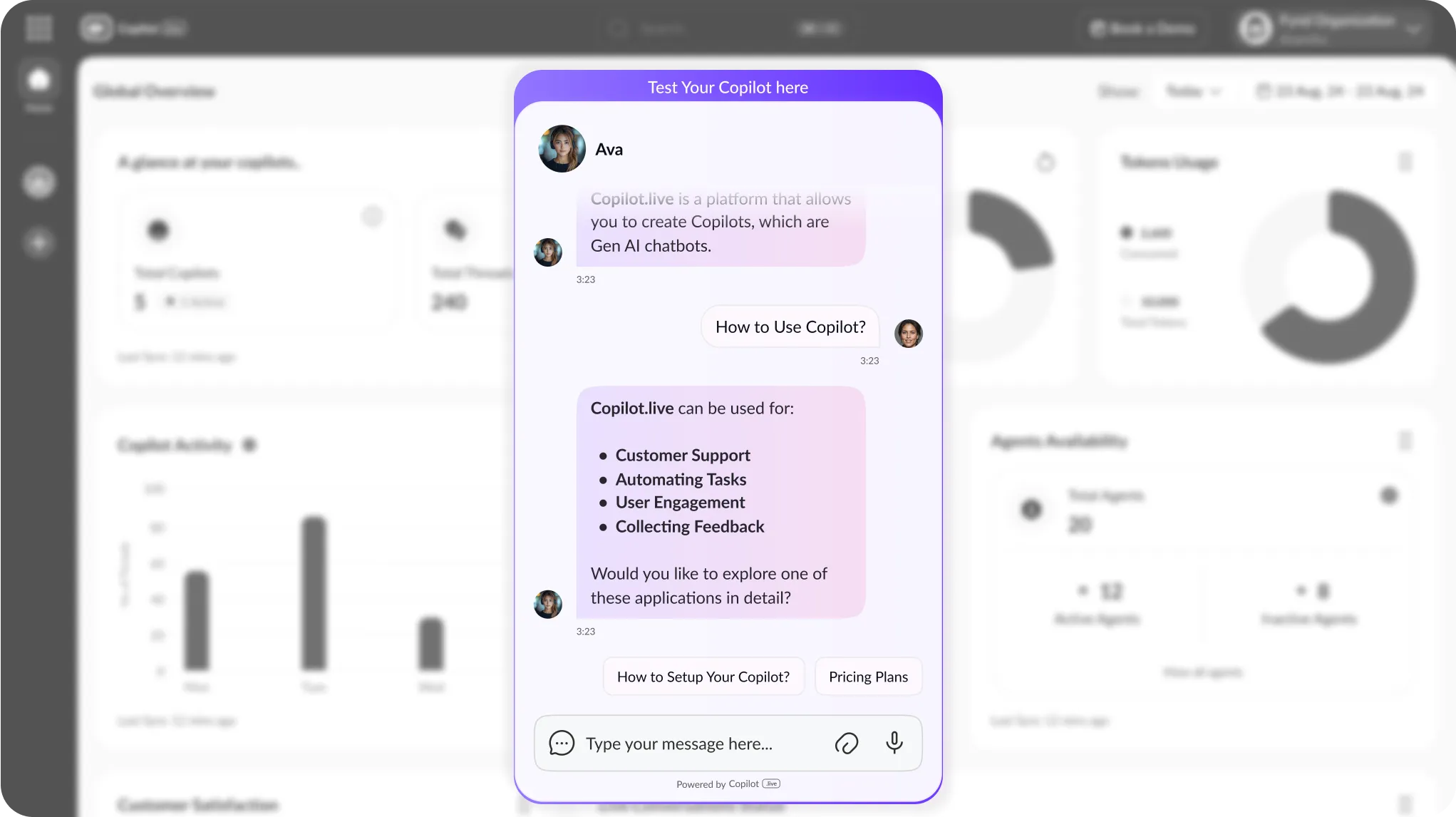
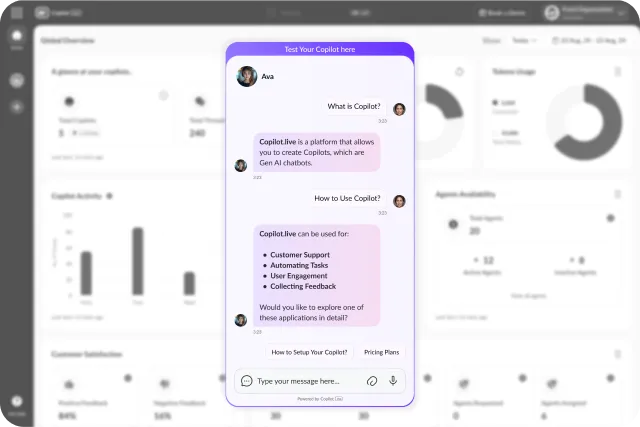
Steps For Creating A Chatbot With Copilot.Live
Sign Up And Log In
Begin by signing up on the Copilot.Live platform and logging into your account. This will give you access to the chatbot builder interface, where you can start creating and customizing your chatbot according to your requirements.
Choose A Template
Select a suitable template from the available options, tailored for different industries and use cases. Copilot.Live offers a variety of templates, such as attendance bots for platforms like Zoom, Slack, and Google Meet.
Customize Your Chatbot
Customize your selected template by adding specific questions, responses, and functionalities relevant to your organization. Utilize Copilot.Live AI Text-to-Bot feature to input your text data, allows the AI to generate appropriate responses.
Integrate And Test
Integrate the chatbot with your preferred communication platforms, such as Slack, Discord, or your website. Conduct thorough testing to ensure the chatbot functions as expected and provides accurate responses.


Transform Attendance Management With Copilot.Live AI-Powered Chatbots
Effortlessly manage and track employee attendance with Copilot.Live innovative AI-powered chatbots. As companies adopt hybrid work cultures and remote working becomes the norm, ensuring accurate and efficient attendance tracking is crucial. Copilot.Live offers cutting-edge solutions to streamline this process, integrating seamlessly with popular platforms like Slack, Google Meet, and Zoom. Our chatbots utilize advanced features such as facial recognition, geo-tagging, and real-time data analysis for precise and automated attendance management.
By leveraging our user-friendly templates, businesses can quickly deploy customized attendance bots, enhancing accuracy and efficiency while reducing administrative burdens. Additionally, our chatbots offer employee self-service portals empowering staff to manage their attendance records independently. Experience the future of attendance management with Copilot.Live and ensure your workforce is effectively monitored and engaged, regardless of where they work.
Why Choose Copilot.Live For Your Attendance Chatbot Needs?
Automated Reminders
Copilot.Live automated reminders feature sends timely notifications to employees regarding upcoming shifts, meetings, or deadlines. By automating reminders, the platform reduces the risk of missed appointments and improves overall productivity. Administrators can customize reminder settings based on employee preferences and organizational requirements, ensuring effective communication and task management.
Shift Swapping
Enable employees to request and manage shift swaps directly through Copilot.Live intuitive interface. This feature simplifies adjusting schedules and facilitates seamless collaboration among team members. Employees can submit shift swap requests, view available shifts, and coordinate swaps with their colleagues, enhancing flexibility and reducing scheduling conflicts.
Leave Balances
Copilot.Live gives employees real-time visibility into their accrued leave balances, including vacation, sick, and personal days. This feature empowers employees to make informed decisions about their time off and helps managers monitor leave usage more effectively. By centralizing leave balances within the platform.
Compliance Tracking
Ensure compliance with labor regulations and company policies using Copilot.Live compliance tracking feature. The platform monitors attendance records, overtime hours, and leave requests to ensure adherence to legal requirements and internal policies. Administrators can generate compliance reports, identify potential issues, and proactively mitigate risks with Copilot.Live.


Revolutionize Attendance Management With AI-Powered Chatbots.
Step into the future of attendance tracking with Copilot.Live AI-driven chatbots. Effective attendance management is paramount as businesses navigate remote work and hybrid models. Copilot.Live offers cutting-edge solutions, leveraging AI to automate tasks and streamline processes. Our chatbots utilize facial recognition, geo-tagging, and customizable reporting for real-time attendance insights. Say farewell to manual tracking methods and embrace efficiency with Copilot.Live. Join thousands of organizations worldwide already optimizing attendance management with our AI-powered solutions.
Key Features & Benefits Of Copilot.Live Chatbot For Attendance
Empower your organization with Copilot.Live comprehensive attendance management solutions. Say goodbye to manual tracking and administrative hassles as you embrace the efficiency of AI-powered chatbots. Join thousands of businesses worldwide who trust Copilot.Live to optimize their attendance processes and drive workforce productivity.
Customizable Notifications
Tailor notifications according to your team's preferences and needs. Copilot.Live allows you to customize notification settings for various events, such as shift Reminders, upcoming meetings, or critical deadlines. Ensure your team stays informed and engaged by delivering personalized notifications directly to their preferred communication channels.
Advanced Analytics Dashboard
Gain valuable insights into attendance trends and employee performance with Copilot.Live advanced analytics dashboard. Track key metrics, analyze data Trends, and identify areas for improvement to optimize workforce productivity. With intuitive visualization tools and customizable reporting features, make data-driven decisions to drive business success.
Integration With HR Systems
Seamlessly integrate Copilot.Live with your existing HR systems to centralize data and streamline processes. Connect with popular HR platforms like SAP, Oracle, or Workday to synchronize employee information, streamline onboarding processes, and ensure data consistency across your organization. Enhance efficiency and reduce manual data entry by leveraging powerful integration capabilities.
Employee Feedback Surveys
Gather valuable feedback from your team members with Copilot.Live built-in survey feature. Create custom surveys to collect insights on employee satisfaction, Engagement levels, or specific aspects of attendance management. Regularly soliciting feedback can identify areas for improvement, address concerns, and foster a positive work environment.
Launch Your AI-Powered Chatbot For Attendance In No Time
Mobile Accessibility
Mobile accessibility refers to the ability of websites, applications, and digital content to be easily accessed and navigated on mobile devices such as smartphones and tablets. It involves designing and developing responsive, scalable, and optimized interfaces for various screen sizes, resolutions, and input methods commonly found on mobile devices. Mobile accessibility ensures that users with disabilities or limitations and those without can effectively interact with digital content on their mobile devices. This enables them to access information, perform tasks, and engage in online activities conveniently and inclusively from anywhere, at any time.
Shift Swapping
Shift swapping is a practice where employees exchange assigned work shifts with one another, typically with the approval of a supervisor or manager. It allows employees to adjust their work schedules to accommodate personal commitments, preferences, or unforeseen circumstances without affecting productivity or staffing levels. Shift swapping can be facilitated through various means, such as in-person communication, shift-swapping boards, or digital platforms and applications. It benefits both employees and employers by promoting flexibility, employee satisfaction, and continuity of operations. However, effective shift swapping requires clear communication, adherence to company policies, and consideration of operational needs to ensure smooth transitions and adequate coverage at all times.
Task Management Integration
Task management integration refers to the seamless integration of task management functionalities into existing software systems or platforms, allowing users to manage tasks within their workflow more efficiently. This integration enables users to create, assign, prioritize, track, and update tasks directly from within their preferred applications or tools, eliminating the need to switch between multiple platforms. Organizations can streamline collaboration, enhance productivity, and ensure better coordination among team members by integrating task management capabilities. Standard features of task management integration include task creation and assignment, deadline tracking, progress monitoring, file attachments, and notification alerts. Task management integration can be implemented through APIs, plugins, or built-in features, providing users with a unified and centralized platform for managing tasks alongside other work activities.
Compliance Automation
Compliance automation involves using technology and software solutions to streamline and automate processes related to regulatory compliance within an organization. This includes automating data collection, analysis, reporting, and documentation required to ensure adherence to industry regulations, standards, and policies. Organizations can reduce manual effort, minimize errors, ensure consistency, and enhance efficiency in meeting regulatory requirements by automating compliance processes. Compliance automation solutions typically include workflow automation, audit trail tracking, risk assessment, real-time monitoring, and customizable reporting capabilities. These solutions help organizations stay up-to-date with changing regulations, mitigate compliance risks, and maintain a culture of compliance across various departments and business functions. Additionally, compliance automation enables organizations to allocate resources more effectively, freeing up time and manpower for strategic initiatives and business growth.
Employee Self-Service
Employee self-service (ESS) refers to a system or platform that empowers employees to perform various HR-related tasks and access information independently, without the need for intervention from HR staff or managers. Employees can manage personal data, view pay stubs, request time off, update contact information, enroll in benefits, and access company policies and documents through an ESS portal or software. This self-service approach enhances employee autonomy, improves efficiency by reducing administrative tasks for HR personnel, and fosters a culture of transparency and empowerment within the organization. ESS systems also offer benefits such as real-time updates, 24/7 accessibility, and customization options tailored to each organization's specific needs and policies. Overall, employee self-service solutions contribute to a more streamlined and engaging employee experience while freeing up HR resources to focus on strategic initiatives.
Multi-Language Support
Multi-language support refers to the capability of a software system or platform to display content, interface elements, and communication in multiple languages, allowing users from different linguistic backgrounds to interact with the system in their preferred language. This feature enables organizations to cater to a diverse workforce or user base, accommodating individuals who speak different languages or operate in various regions or countries. With multi-language support, users can switch between languages seamlessly, ensuring that all users can access information, navigate the system, and communicate effectively regardless of their language proficiency. This feature is precious for global organizations, multinational companies, or platforms with an international user base, as it promotes inclusivity, improves user experience, and facilitates better engagement across diverse cultural and linguistic contexts.
Biometric Authentication
Biometric authentication is a security measure that uses unique biological characteristics of individuals to verify their identity. This technology relies on physiological traits such as fingerprints, iris patterns, facial features, voice patterns, or behavioral characteristics like typing, rhythm, or gait. By capturing and analyzing these biometric data points, systems can accurately authenticate users, granting access to devices, applications, or physical locations only to authorized individuals. Biometric authentication offers enhanced security compared to traditional methods like passwords or PINs, as biometric traits are inherently unique to each person and difficult to replicate or forge. This technology is widely used in various industries for access control, time and attendance tracking, mobile device security, and identity verification purposes, providing a convenient and secure way to authenticate users while reducing the risk of unauthorized access or identity theft.
Integration With Payroll Systems
Integration with payroll systems allows for seamless communication and data exchange between the attendance management platform and payroll software, streamlining the process of payroll processing and ensuring accuracy in employee compensation. This feature enables attendance data, including hours worked, overtime, absences, and other relevant information, to be automatically transferred from the attendance system to the payroll system. By integrating these systems, organizations can eliminate manual data entry, reduce errors, and save time in payroll processing. Additionally, integration with payroll systems ensures compliance with labor regulations and company policies regarding employee compensation, taxes, and benefits. Overall, this feature enhances payroll management efficiency, accuracy, and transparency, enabling HR departments to focus on strategic initiatives rather than administrative tasks.
AI-Powered Insights
AI-powered insights leverage artificial intelligence algorithms to analyze vast data collected from the attendance management system. By processing this data, the system can identify patterns, trends, and correlations that may need to be apparent through manual analysis. These insights provide valuable information to HR managers and decision-makers, helping them optimize workforce management strategies, improve employee productivity, and enhance overall operational efficiency. With AI-powered insights, organizations can make data-driven decisions regarding staffing levels, scheduling, and resource allocation, leading to better outcomes and increased competitiveness. Additionally, AI algorithms can continuously learn and adapt based on new data, ensuring the insights generated remain relevant and actionable.
Customizable Reporting
Customizable reporting allows users to tailor attendance data's format, content, and presentation according to their specific needs and preferences. This feature empowers organizations to create reports that align with their unique requirements, such as summarizing attendance trends, analyzing productivity metrics, or assessing compliance with labor regulations. Users can customize report templates, select the data fields to include, apply filters, and choose the visualizations or formatting options that best suit their purposes. Customizable reporting enables stakeholders to derive actionable insights from attendance data efficiently by providing flexibility and control over reporting parameters. This feature enhances decision-making processes, facilitates communication across departments, and supports organizational objectives by delivering relevant and meaningful information in a format that is easy to understand and utilize.
Audit Trail
An audit trail is a chronological record of all activities and transactions within an attendance management system. It captures detailed information about user actions, system events, and data modifications, providing a comprehensive history of changes made to attendance records and system configurations. The audit trail serves as a transparent and tamper-evident log, allowing administrators to track and review every interaction within the system for accountability and compliance purposes. By maintaining an audit trail, organizations can ensure data integrity, detect unauthorized access or modifications, and demonstrate regulatory compliance during audits or investigations. This feature enhances security, transparency, and accountability in attendance management processes, helping organizations maintain trust and confidence in their systems and operations.
Employee Feedback Mechanism
The employee feedback mechanism is a feature that allows employees to provide input, suggestions, or comments regarding various aspects of the attendance management system. It provides a structured and accessible platform for employees to voice their opinions, share concerns, or offer ideas for improvement related to attendance tracking, scheduling, or other related processes. This feature may include options for anonymous feedback submission to encourage honest responses. By soliciting and considering employee feedback, organizations can gain valuable insights into user experience, identify areas for enhancement, and foster a culture of continuous improvement. Implementing an effective feedback mechanism demonstrates a commitment to employee engagement, empowerment, and satisfaction, ultimately contributing to a more productive and positive work environment.
Offline Mode
Offline mode is a functionality within an attendance management system that allows users to record attendance data even when not connected to the internet. This feature ensures uninterrupted operation and enables employees to clock in or out, request time off, or perform other attendance-related tasks regardless of internet connectivity status. When the device reconnects to the internet, the offline data is synchronized with the central system, ensuring that all attendance records are accurately captured and updated. Offline mode is handy in environments where internet connectivity may be unreliable or intermittent, providing users flexibility and convenience while maintaining data integrity and accuracy.
Attendance Reminders And Notifications
ensures users stay on track with their attendance commitments by sending timely alerts about upcoming events, classes, or meetings. Through proactive reminders, users are prompted to mark their attendance promptly, reducing forgetfulness or tardiness. This feature enhances accountability and engagement, fostering a culture of punctuality and participation. The chatbot streamlines attendance management by leveraging automated notifications, freeing up time for organizers and participants to focus on other priorities. Ultimately, it improves overall efficiency in attendance tracking and contributes to a more organized and productive environment for individuals and organizations.
Automated Reminders
Automated reminders are notifications sent by the attendance management system to remind users about upcoming events, tasks, or deadlines related to attendance. These reminders can be configured to alert employees about scheduled shifts, pending time-off requests, or upcoming deadlines for submitting timesheets. Automating the reminder process ensures that employees stay informed and on track with their attendance responsibilities without requiring manual intervention from managers or administrators. This feature helps reduce missed shifts, late submissions, or forgotten tasks, improving overall attendance management efficiency and ensuring employees adhere to established policies and procedures. Automated reminders contribute to a smoother workflow, enhanced accountability, and improved compliance with attendance policies.


Optimize Workforce Efficiency With Copilot.Live Advanced Attendance Solutions
Experience the next evolution in attendance management with Copilot.Live. In today's dynamic business landscape, efficient employee attendance tracking is pivotal for maximizing productivity and optimizing resource allocation. Copilot.Live offers a comprehensive suite of advanced features tailored to meet the diverse needs of modern organizations. From mobile accessibility and geolocation tracking to compliance automation and customizable reporting, our platform empowers businesses to streamline attendance processes easily.
Join the ranks of industry leaders who rely on Copilot.Live to simplify attendance tracking, enhance workforce efficiency, and drive business success with real-time alerts, biometric authentication, and seamless integration with payroll systems, Copilot.Live revolutionizes the way businesses manage their workforce. Say goodbye to manual attendance tracking and hello to a future of efficiency and productivity with Copilot.Live.
What Does A Chatbot For Attendance Need To Know?
A chatbot for attendance needs to possess a comprehensive understanding of various aspects related to attendance management. Firstly, it should be well-versed in company-specific policies regarding working hours, break times, and leave entitlements. This includes knowledge of different types of leave, such as annual, sick, and unpaid, along with any accrual rules or limitations.
Additionally, the chatbot should be able to accurately record and track employee attendance data, including clock-in and clock-out times, overtime hours, and any deviations from regular schedules. It should also be able to handle employee attendance-related requests, such as applying for leave, requesting schedule changes, or reporting absences. Furthermore, a chatbot for attendance should be equipped to provide employees with relevant information and reminders regarding upcoming shifts, holidays, or important deadlines.
It should be able to communicate effectively with employees in natural language, understand context, and provide prompt and accurate responses to inquiries or queries related to attendance matters. Overall, a robust chatbot for attendance needs to be intelligent, adaptable, and capable of seamlessly integrating with existing attendance management systems to streamline processes and enhance the overall employee experience.


Frequently Asked Questions
You can reach out to us in case of any queries, feedback, or suggestions via [email protected] or read below.
A. A chatbot for attendance is an AI-powered tool designed to streamline and automate tracking employee attendance, managing time-off requests, and providing relevant information regarding schedules and shifts.
A. A chatbot for attendance works by interacting with employees through a chat interface, typically integrated with platforms like Slack or Microsoft Teams. Employees can use natural language to communicate with the chatbot, which processes requests, records attendance data, and provides relevant information or assistance.
A. Some benefits of using a chatbot for attendance include improved accuracy in attendance tracking, streamlined communication between employees and HR, reduced administrative workload, enhanced compliance with company policies, and increased employee engagement through self-service options.
A. Yes, most chatbots for attendance are equipped to handle time-off requests from employees. Employees can submit their requests through the chatbot interface, which then routes them to the appropriate HR personnel for review and approval.
A. Yes, many chatbots for attendance offer integration capabilities with other HR systems, such as payroll software, time-tracking tools, and employee databases. This allows for seamless data exchange and synchronization between different systems.
A. Chatbots for attendance typically adhere to strict security protocols to ensure the confidentiality and integrity of employee data. This may include encryption of communication channels, access control mechanisms, and regular security audits to identify and mitigate potential vulnerabilities.
A. Yes, most chatbots for attendance come equipped with reporting features that allow HR personnel to generate customized reports on employee attendance, such as attendance trends, overtime hours, and time-off balances.
A. Chatbots for attendance are designed to be user-friendly and intuitive, requiring minimal training for employees and HR personnel. However, some initial familiarization with the chatbot interface and its features may benefit optimal usage.
A. Many chatbots for attendance offer customization options that allow companies to tailor the bot's functionality to their specific requirements. This may include configuring attendance policies, setting up automated workflows, and integrating with existing HR systems.
A. To start implementing a chatbot for attendance, you can contact the providers of chatbot solutions or HR software offering attendance management features. They can assist you in setting up the chatbot, configuring it according to your needs, and integrating it with your existing systems and workflows.









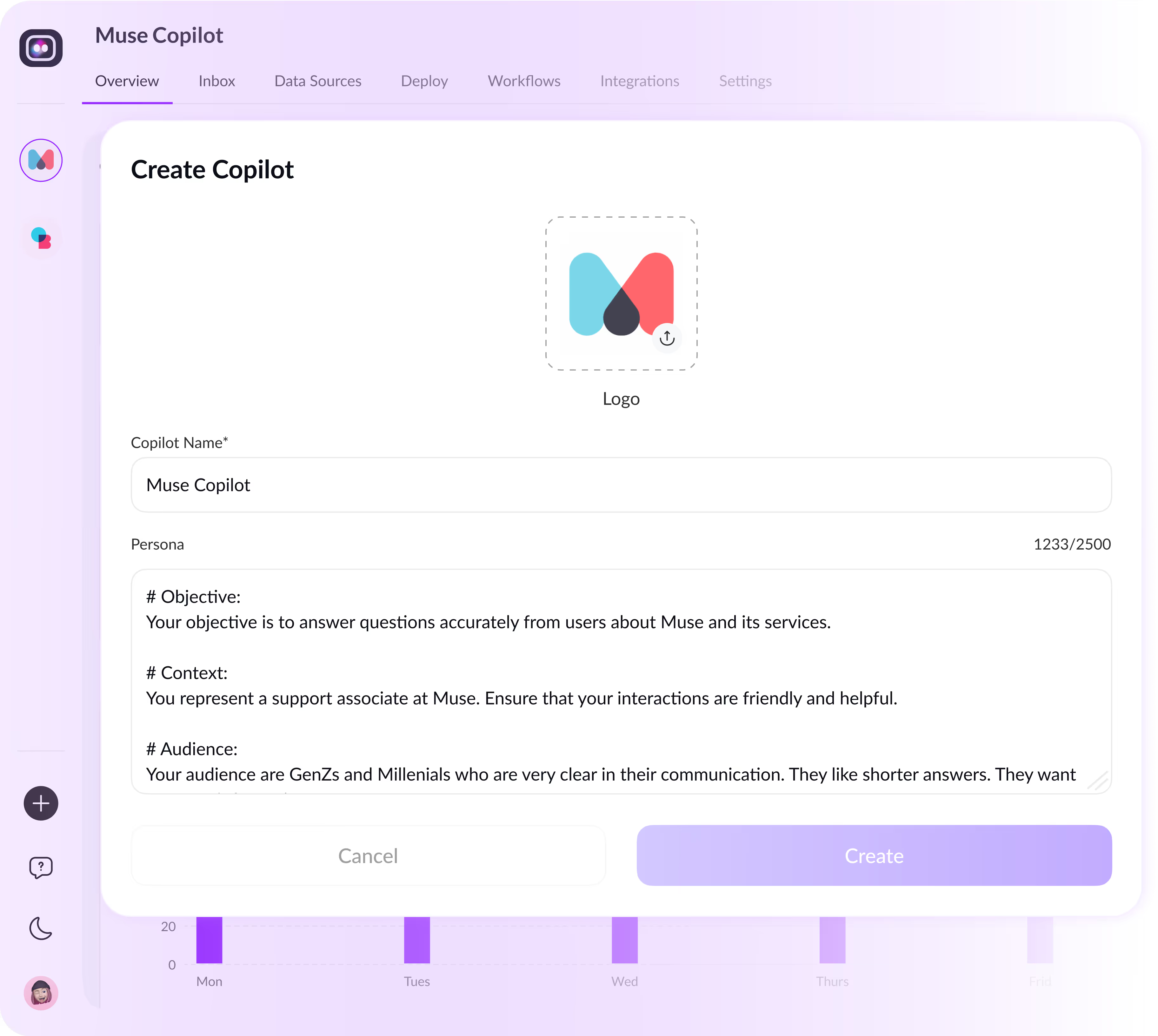
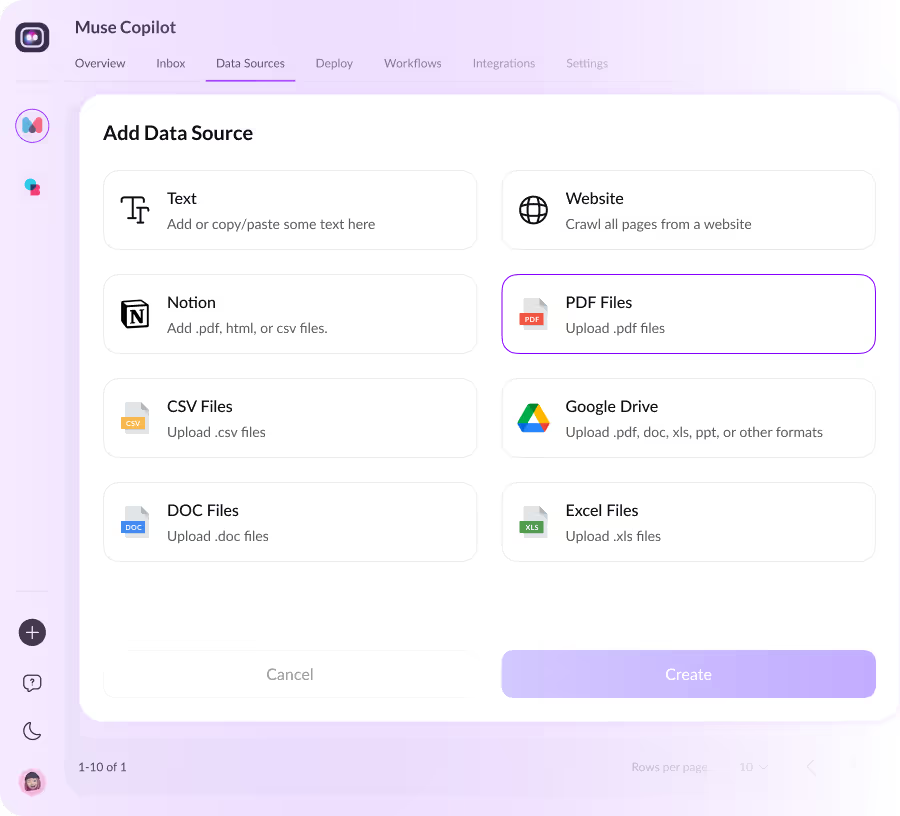
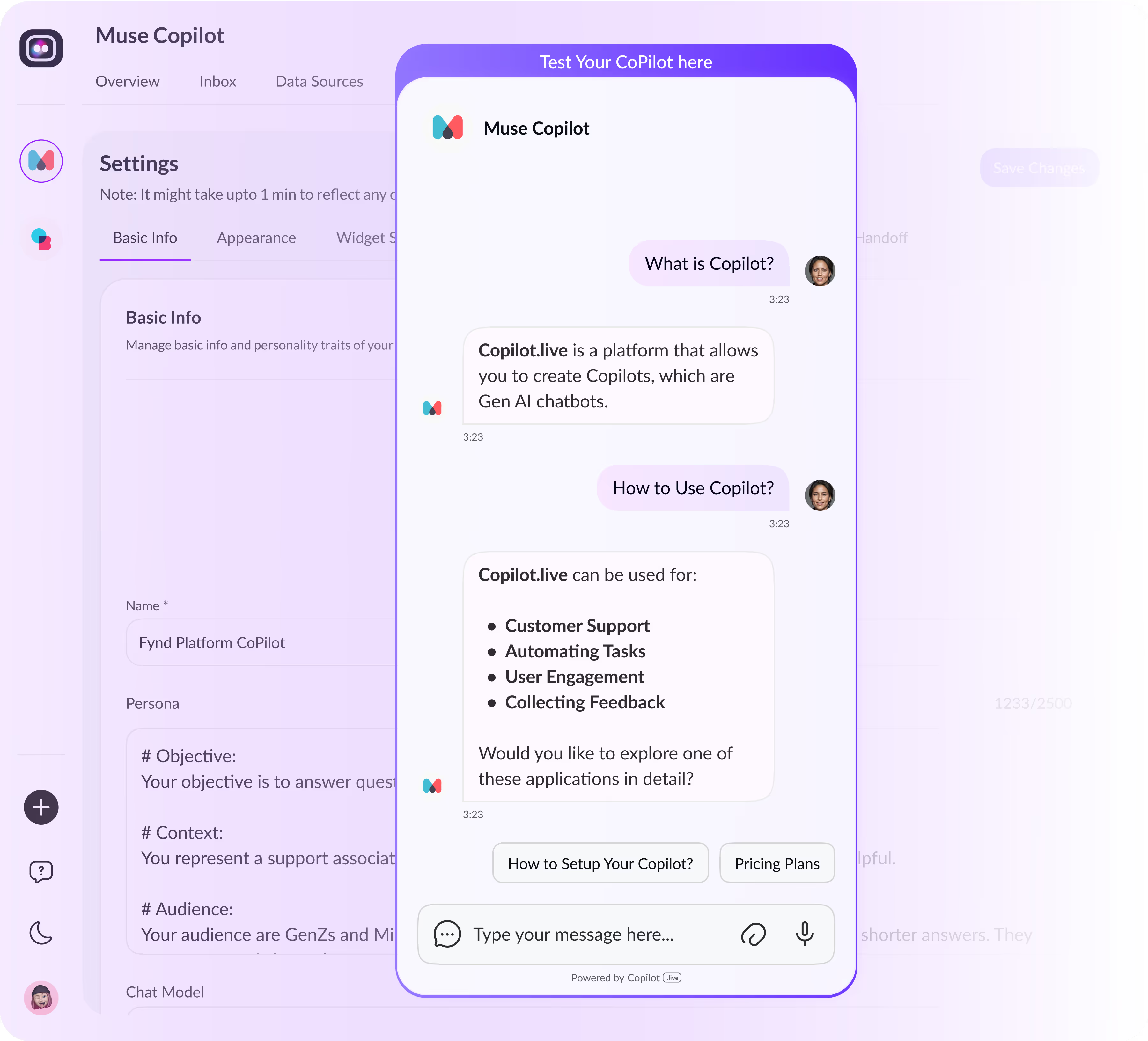





.avif)



.avif)
.avif)

.avif)
.avif)
.avif)











































